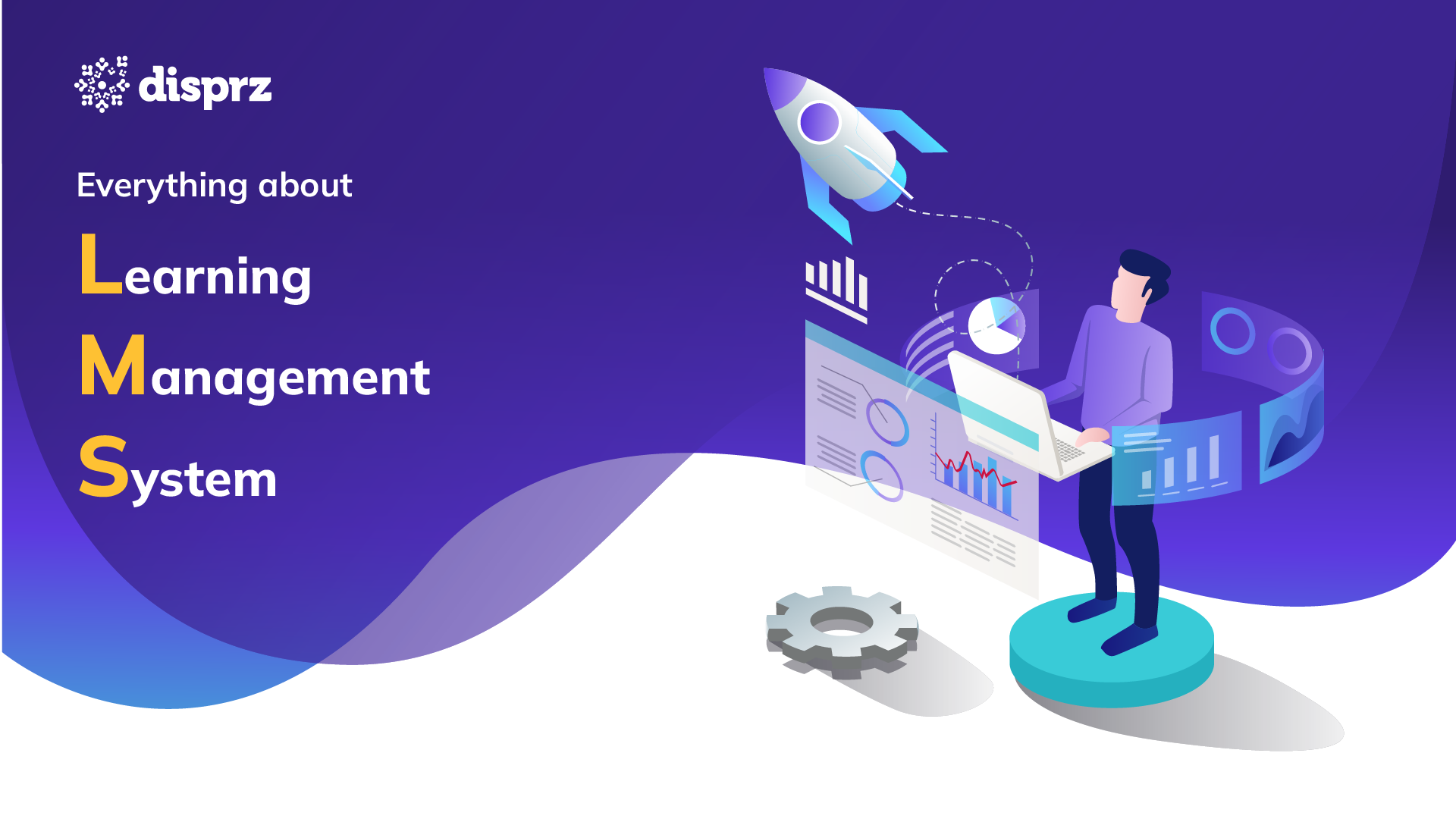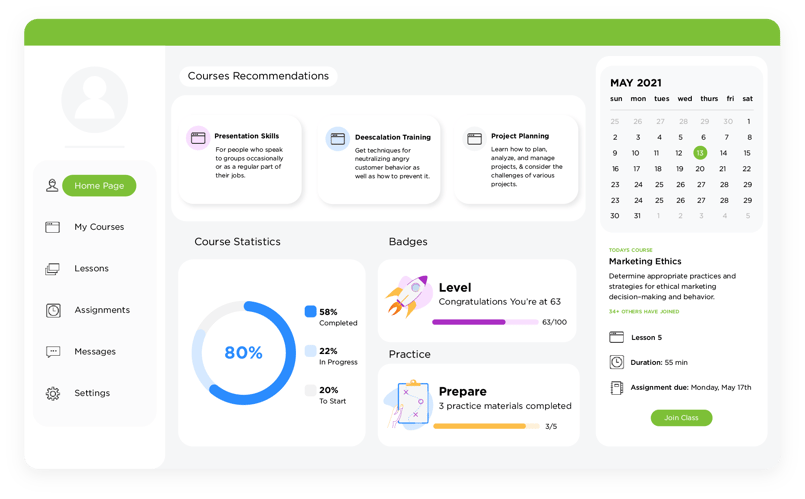Learning Management System Singapore: Choosing the Right System for Your Group
Learning Management System Singapore: Choosing the Right System for Your Group
Blog Article
Selecting the Best Learning Administration System for Your Company
Choosing the ideal Discovering Management System (LMS) for your company is a complex decision that needs careful factor to consider of numerous components. From defining exact knowing purposes that resonate with your strategic vision to reviewing individual experience, each variable plays an essential duty in the general effectiveness of the system. Furthermore, recognizing combination abilities and making sure scalability for future needs can not be overlooked. As organizations pursue effectiveness and development, the option of an LMS comes to be progressively significant. What are the critical considerations that can affect your decision-making process?
Specify Your Knowing Purposes
Defining clear discovering objectives is vital for the successful execution of an Understanding Administration System (LMS) These goals function as a roadmap, leading the growth of content, assessments, and general training approaches within the LMS. By developing details, measurable, achievable, relevant, and time-bound (CLEVER) objectives, organizations can make certain that the learning experiences are aligned with their strategic goals and learner demands.
Effective knowing objectives ought to envelop what students are anticipated to recognize or be able to do upon conclusion of a training course or training program. This quality not only help in content development yet additionally helps with the assessment of student progression and the general efficiency of the LMS. LMS SG. Well-defined objectives make it possible for stakeholders to analyze whether the picked LMS capabilities and features line up with their instructional goals.
Assess Customer Experience
Once finding out goals have actually been established, evaluating user experience becomes an important next action in choosing an ideal Knowing Administration System (LMS) Individual experience includes the overall fulfillment and convenience with which students communicate with the system. A properly designed LMS should promote intuitive navigation, making sure that customers can situate courses, products, and assistance effortlessly.
To assess user experience, consider performing usability testing with a depictive example of end-users. Secret elements to evaluate consist of the LMS's interface design, availability attributes, mobile compatibility, and the clarity of instructions offered.
Furthermore, assess the availability of assistance sources, such as tutorials and help centers, which can improve the individual experience. The responsiveness of consumer assistance is additionally vital; timely assistance can considerably reduce disappointments that users may come across. Eventually, choosing an LMS that prioritizes user experience not only enhances the learning process however also fosters higher interaction and complete satisfaction among students.

Evaluate Integration Capacities
Identifying the importance of seamless performance, assessing integration capacities is critical when choosing an Understanding Management System (LMS) A reliable LMS ought to facilitate interoperability with existing systems, such as Personnel Management Equipment (HRMS), Customer Partnership Administration (CRM) systems, and other academic devices. This integration boosts data circulation, reduces management burdens, and ensures a natural learning setting.
When assessing an LMS, consider the sorts of combinations used. Look for Application Programming Interfaces (APIs), Single Sign-On (SSO) capabilities, and pre-built ports that improve assimilation processes. In addition, confirm the LMS's ability to integrate with third-party devices, such as material libraries or analysis platforms, which can considerably improve the learning experience.

Think About Scalability and Flexibility
As companies evolve, the capacity of a Discovering Management System (LMS) to range and adjust comes to be significantly vital. A scalable LMS can accommodate development in individual numbers, course offerings, and web content without endangering efficiency or individual experience. As businesses increase, whether via enhanced employees, brand-new locations, or varied training demands, the LMS ought to flawlessly grow along with these changes.
Versatility is equally vital; a reliable LMS should support numerous website here finding out methods, such as online, combined, and mobile understanding. This flexibility permits companies to react swiftly to arising patterns in training and development, ensuring that they can provide interesting and pertinent understanding experiences - LMS Singapore. In addition, the system should supply personalized functions, making it possible for organizations to customize the LMS to their certain needs and branding
Additionally, a flexible LMS needs to integrate quickly with existing devices and systems, facilitating a natural learning ecological community. Thus, when picking an LMS, it is essential to analyze not just its existing capacities however additionally its possible to grow and adapt abreast with the company's calculated objectives and evolving discovering needs. This insight can significantly enhance the long-term feasibility of the selected LMS.
Review Costs and Budgeting
When assessing a Learning Management System (LMS), reviewing costs and budgeting is important to ensure that the financial investment lines up with the organization's economic abilities and tactical objectives. Organizations should start by determining the total price of possession, which includes licensing fees, implementation prices, upkeep, and any kind of additional expenditures such as training and technical support.
It is critical to compare numerous LMS options, as pricing models this link can differ substantially amongst vendors. Some systems might offer a subscription-based model, while others may bill a single cost. Organizations should also think about the scalability of the LMS; as they grow, the cost structure may alter, impacting lasting budgeting.

Final Thought
Picking an ideal Discovering Management System (LMS) is necessary for achieving organizational discovering purposes. A detailed analysis of user experience, combination capacities, scalability, and economic factors to consider guarantees that the selected LMS lines up with critical objectives and learner needs. By systematically attending to these variables, companies can enhance learning outcomes, help with smooth procedures, and assistance future development. Ultimately, the best LMS acts as a pivotal tool in promoting an effective discovering environment and driving business success.
Picking the ideal Understanding Management System (LMS) for your company is a multifaceted decision that requires cautious consideration of numerous elements.Specifying clear discovering goals is vital for the successful implementation of an useful site Understanding Administration System (LMS)Once learning purposes have been developed, examining individual experience becomes an essential next step in picking an ideal Discovering Management System (LMS)As companies progress, the capability of a Learning Management System (LMS) to range and adapt becomes significantly essential.Picking a suitable Learning Administration System (LMS) is essential for attaining organizational understanding objectives.
Report this page